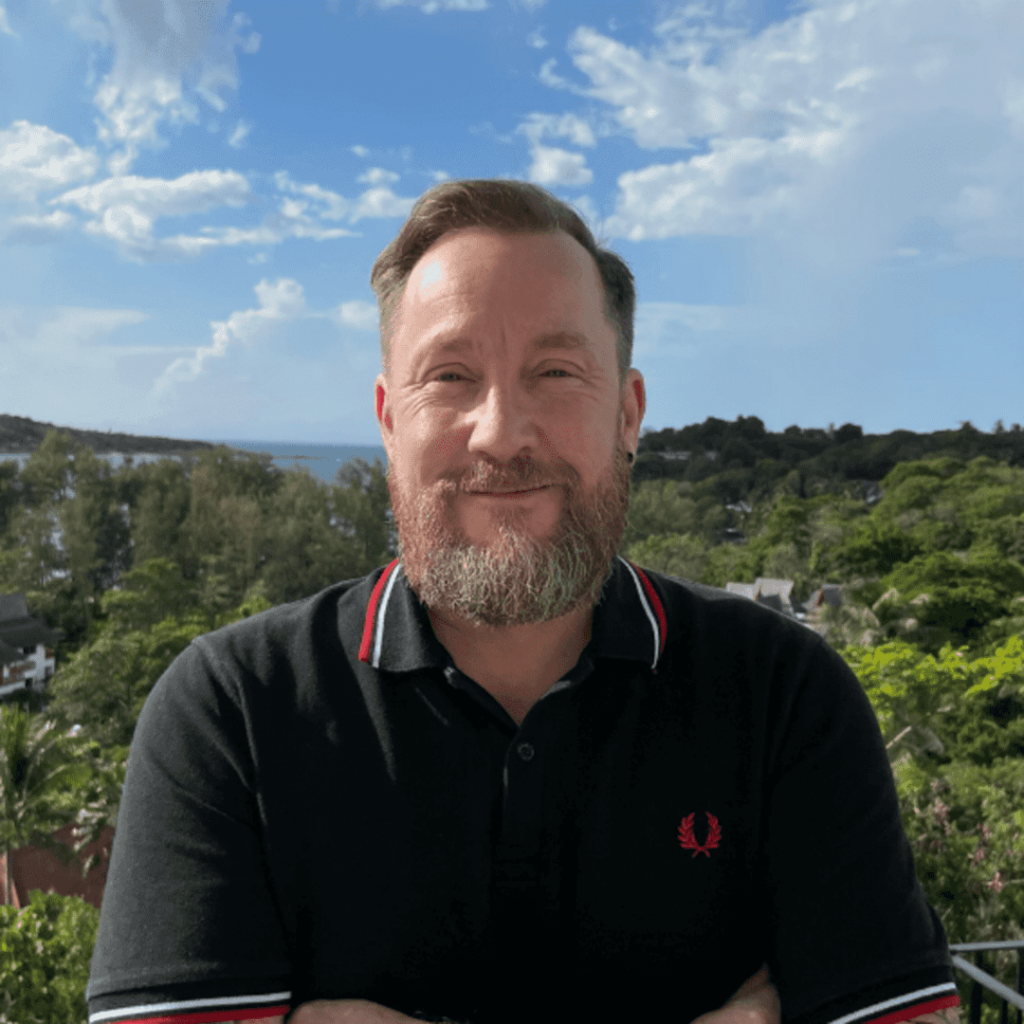Do I Need Trauma Counseling?

Trauma Counseling: Signs You May Need Professional Support
Trauma is more common than many people realize. Large international surveys indicate that most people experience at least one potentially traumatic event in their lifetime.
Living with unresolved trauma can feel overwhelming. It may affect your body, your emotions, your focus, and your ability to connect with others. Trauma counseling offers a way to process these experiences in a safe environment and regain a sense of balance. If you would like confirmation on whether counseling is right for you, contact Yatra Centre at +66 96 916 3287.
Signs You May Need Trauma Counseling
Trauma can show up in obvious and subtle ways. Some signs are unmistakable, like recurring flashbacks. Others are quieter, like fatigue, irritability, or emotional disconnection. Recognizing the core symptoms of PTSD helps you decide whether to seek help.
Unexplained physical symptoms
Trauma often leaves traces in the body. People report headaches, chest tightness, fatigue, or chronic muscle pain without a clear medical explanation. Chronic stress influences digestion, mood, energy, immunity, and sleep through the gut–brain connection.
Flashbacks and intrusive memories
Flashbacks are vivid replays of traumatic experiences. Everyday sights, sounds, or smells can trigger them, and the body may react as if the danger is present again. Practical guidance on recognizing and managing these symptoms of PTSD can support safer day-to-day coping while you work in therapy.
Persistent mental health struggles
Depression, anxiety, panic attacks, and irritability frequently follow trauma. Effective care includes trauma-focused therapies that deliver strong results. In counseling, you address immediate relief and the patterns that drive those symptoms.
Emotional numbness
Some people feel very little rather than feeling too much. Emotional numbness is a protective response that blunts pain but also blunts joy, love, and interest. Counseling provides a gradual route back to safe emotional expression so you can feel grounded and engaged again.
Difficulty forming or maintaining relationships
When trust has been injured, closeness can feel unsafe. Survivors may withdraw, feel distant, or become overly dependent. The strain on close relationships is common after trauma, and therapy helps rebuild safety, boundaries, and healthy communication.
Substance use or other addictive behaviors
Alcohol, drugs, gambling, or compulsive sexual behaviors can become ways to escape distress. PTSD frequently co-occurs with substance use, so treating both together is usually the most effective approach.
Self-harm or suicidal thoughts
Some people cope with unbearable feelings by harming themselves or thinking about suicide. These are urgent signs that immediate support is needed. Counseling offers safer strategies for emotion regulation and a path back to hope. If you have suicidal thoughts, seek help right now through local emergency services or a crisis line in your country.
Difficulty concentrating or working
Trauma can interfere with attention, memory, and decision making. Foggy focus, slowed thinking, and forgetfulness are common until the nervous system settles. Counseling helps restore concentration by reducing hyperarousal and teaching reliable regulation skills.
Risky or impulsive behavior
Reckless driving, unsafe sex, or sudden financial decisions can be attempts to escape distress or to feel something different. Counseling helps you understand the function of the behavior and offers safer ways to meet that need.
Feeling stuck in survival mode
Many survivors describe living in fight, flight, or freeze long after the danger is over. Safety cues are central to recovery in polyvagal theory, and counseling helps your nervous system settle so you can feel calm, connected, and present.
Why Counseling Helps
Trauma reshapes how the nervous system scans for danger. When the system is dysregulated, the body stays tense, sleep suffers, and attention narrows around threat. Counseling offers a safe relational environment where your system can settle, which makes processing memories and sensations possible. By learning regulation skills, practicing grounding, and gradually integrating traumatic material, you reduce symptom intensity and restore flexibility in how you respond to stress.
What Happens in Trauma Counseling
Effective trauma counseling blends evidence-based methods with supportive practices. Many programs include structured cognitive behavioral therapies for trauma, such as trauma-focused CBT or cognitive processing therapy, because they reduce avoidance and restore a sense of agency.
Programs may also integrate somatic and mindfulness-based work to help the body release stored activation. At Yatra Centre, we combine talk therapy with body-based methods like mindful movement and breath work so you can process experiences cognitively and physiologically at the same time.
FAQ About Trauma Counseling
When considering trauma counseling, it is natural to have questions. Understanding the process can make starting feel easier.
Is trauma counseling effective?
Yes. Multiple summaries of evidence-based trauma treatments show strong outcomes for symptom reduction and improved daily functioning.
How long does it take?
It varies by person and goals. Some people notice meaningful changes in a few months, while others benefit from longer support. The key is steady progress at a sustainable pace.
Is it just talking?
No. While talking is important, many programs include somatic and experiential practices that help the body let go of stored activation. This combination often accelerates recovery.
Can counseling help physical symptoms?
Yes. Calming the nervous system often improves sleep, energy, and pain as chronic stress decreases and the body rebalances.
What if earlier therapy did not help?
It may not have been the right approach at the time. Integrative programs that combine several methods can succeed where a single method fell short.
Yatra Centre – Trauma Counseling and Treatment
Yatra Centre is a residential setting in Krabi designed to feel calm, private, and supportive from the moment you arrive. The program is small by choice so you get focused attention, a predictable routine, and time to unwind from daily stress. Sessions are structured but not rushed, which helps the nervous system settle and makes deeper work possible.
Care is integrated across mind and body. Alongside individual and group counseling, you have access to gentle movement, breath work, and mindfulness so you can release stored activation safely. We also offer a sauna and an optional cold immersion that some clients find helpful for mood and regulation. These practices are integrated thoughtfully and only when appropriate for your health and goals.
Treatment plans are personalized. If trauma relates to grief, childhood experiences, medical events, or relationship harm, your plan is built around those realities. If you are in recovery from alcohol or other substances, we coordinate care so trauma work supports your sobriety rather than overwhelming it.
Family involvement is handled with care. When it is helpful, we include supportive sessions so loved ones understand what you are working on and how to be part of your long-term stability. After residential care, we plan concrete next steps so you can keep momentum with local providers or online support.
If you are ready to begin your journey, call +66 96 916 3287 today.

Mike Miller
Founder & Clinical Director
Mike Miller is a Certified Clinical Trauma Professional, Certified Addiction Therapist, and EMDR Therapist with advanced training in trauma and mental health. He has over 20 years experience delivering behavioural health treatment to clients internationally. As a leading trauma expert, Mike developed the Yatra programme in 2022 to accelerate healing and support lasting transformation.
Subscribe to our newsletter.
Subscribe to our newsletter and join a supportive community dedicated to understanding, overcoming, and transforming personal trauma.
Related Articles
Can Trauma Lead to Hypersexual Behavior? A Closer Look
Trauma can disrupt a person’s life in multiple ways, to the point of affecting aspects of…...
Why a Somatic Healing Retreat Might Be Exactly What You Need
You’ve tried therapy. You’ve read the books. You’ve done your best to manage stress, anxiety, or…...
Trauma Healing and Rehab in Thailand: An Interview with Yatra
Addiction and unresolved trauma affect millions of individuals and families around the world. These challenges are…...
Can PTSD Meds for Nightmares Help You Sleep?
Research from the National Center for PTSD shows that over 90% of Vietnam vets with post‑traumatic…...



